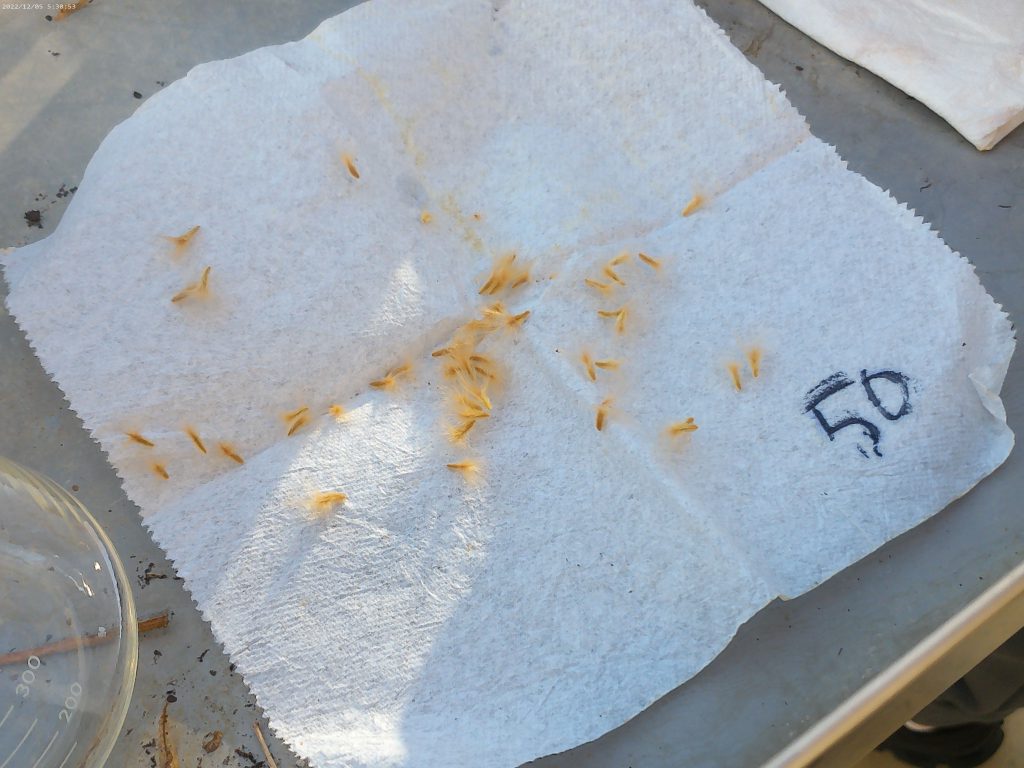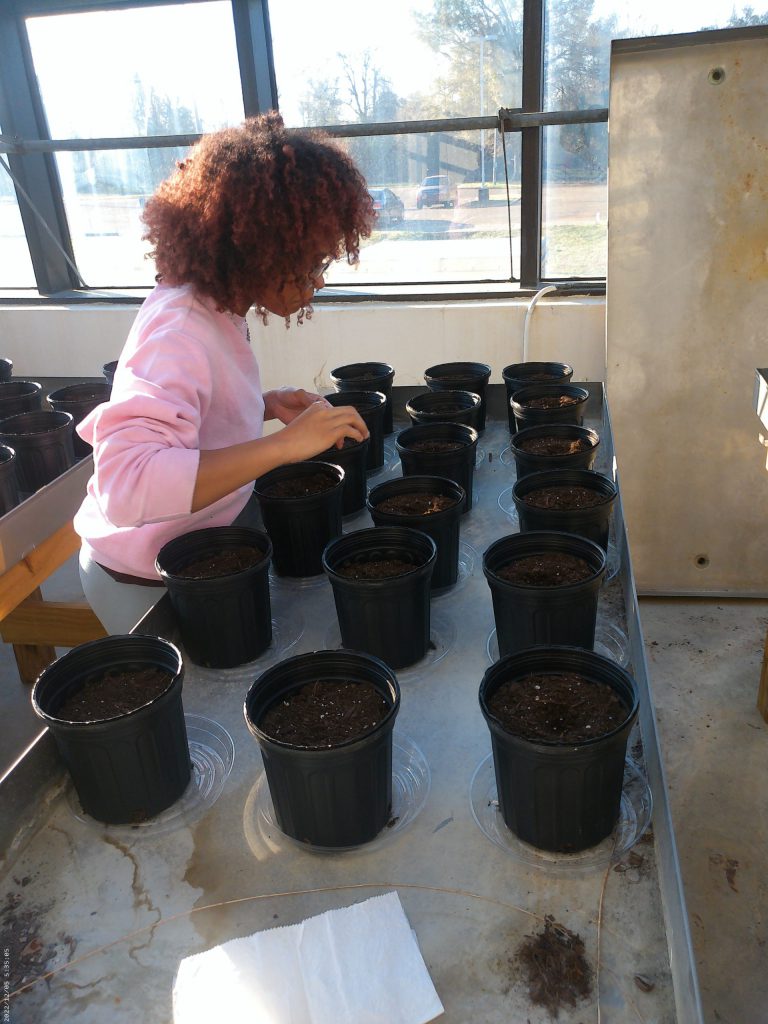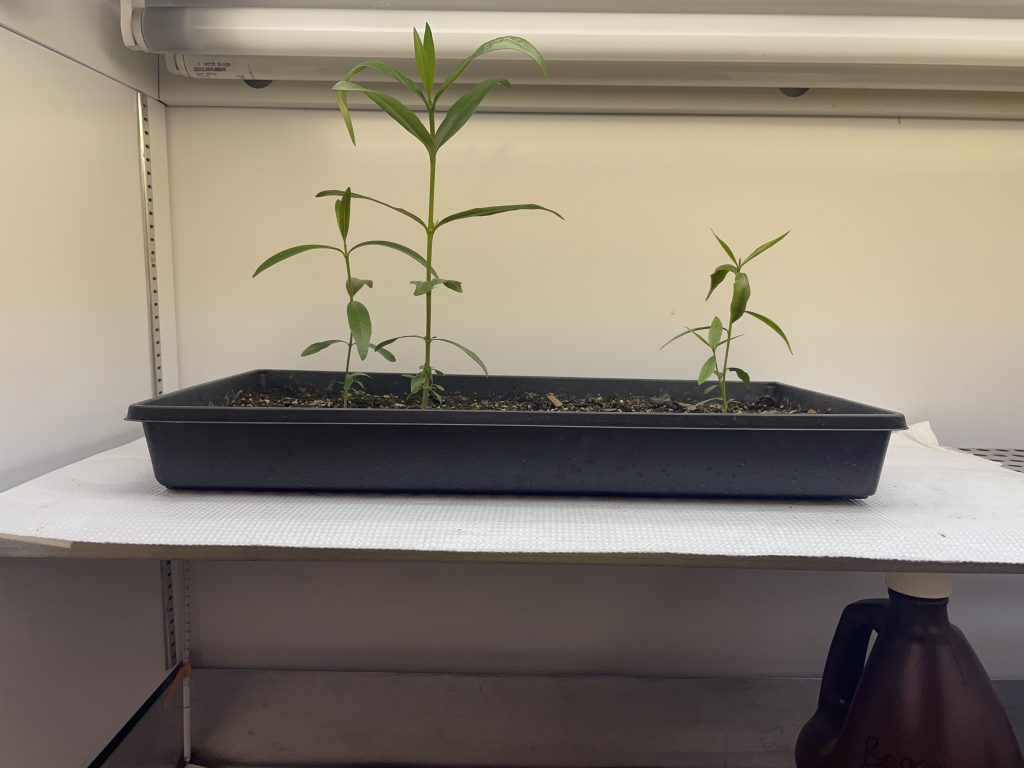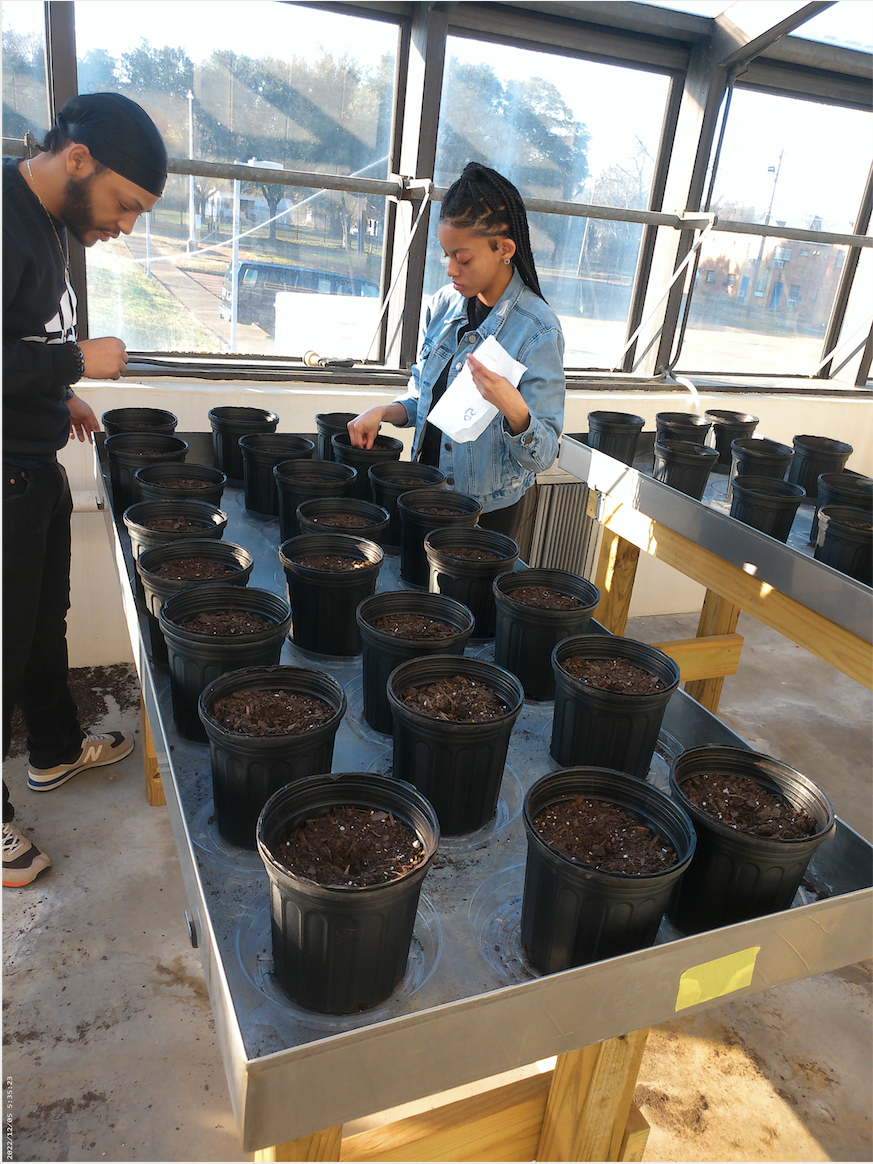Naira A. Ibrahim, Ph.D., assistant professor of Environmental Science in the Department of Biology at Jackson State University, has secured a grant from the National Science Foundation to unravel the genetics of Nerium oleander, a landscape and ornamental plant hailed for its ability to clean the air and soil of pollutants and heavy metals.

Nerium oleander plant. (Photo by Naira A. Ibrahim)
The NSF’s Excellence Intelligent Research (EiR) program funds Ibrahim’s research on the heavy-metal uptake and tolerance in Nerium oleander through transcriptome kaleidoscope. The study could potentially provide clues for understanding how phytoremediation plants help decontaminate environments. It’s a low-cost natural technique that has gained prominence in environmental science.

seed in each pot. (Photo by Naira A. Ibrahim)
Ibrahim said, “The EiR program will help support my lab and cultivate new undergraduate and graduate students interested in environmental science. This opportunity will equip them with valuable experience, opening doors to potential careers in national labs, the U.S. Environmental Protection Agency, and various other promising avenues.”
Ibrahim is working alongside Ananda Nanjundaswamy, Ph.D., an endowed associate professor in Biotechnology Biology and Microbiology at South Dakota State University. Their study holds particular significance as the researchers seek to apply their findings and transform genes in other landscape plants to further aid the environment.

different concentrations of heavy metals. They measure the ability of the plant to
remediate soil (ICP-MS) and identify the genes responsible for the
uptake of heavy metals using a process called transcriptomic. (Photo by Naira A.
Ibrahim)
The long-term goal of the research is to increase the usage of the safe and friendly phytoremediation method. Ibrahim envisions a future in which eco-friendly plants can be used on a larger scale, particularly on farms, to mitigate soil pollution.
Ibrahim’s work can potentially revolutionize environmental cleanup nationwide by offering sustainable solutions for a greener future.








